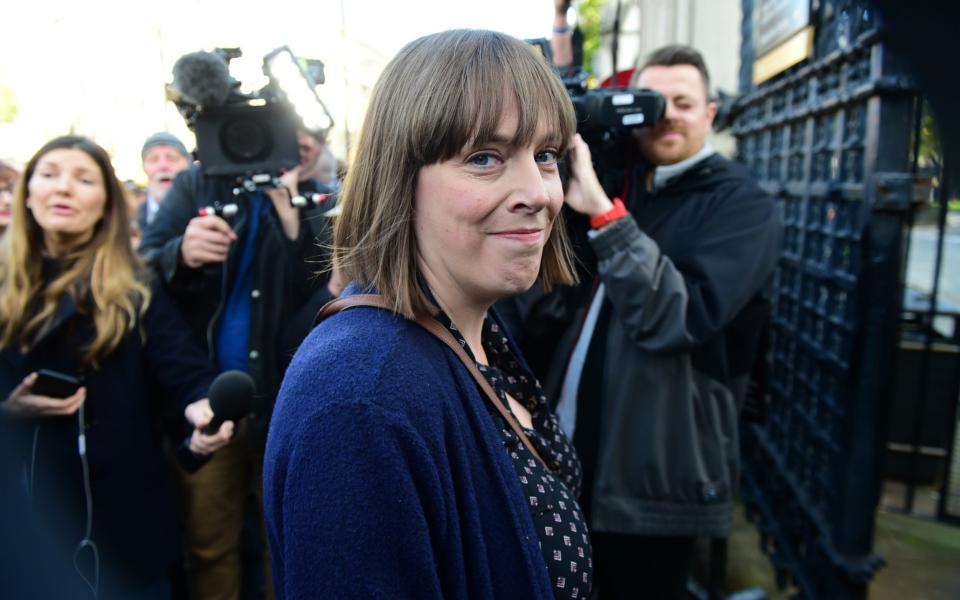‘Being shamed as a ‘Karen’ has made me change my name’

It wasn’t until arriving at Oxford, where I found myself surrounded by plummy-accented Sophies and Lavinias, that I first felt the subtle impediment of my moniker. Consonant-heavy and impossible to shorten gracefully (“Kaz” still makes me shudder), I’d never particularly been fond of the name “Karen”. My Eastern European immigrant parents picked it out of a baby name book in the mid-1980s because they thought it sounded English and thus aspirational; what they weren’t to know was that, in class-obsessed Britain, it was actually considered inherently ‘common’.
It was during the whirlwind of new faces at Freshers Week that introducing myself as “Karen” first began to present a hindrance. Even before privately-educated peers had the opportunity to enquire “Where did you go to school?” as a means of quietly determining my social strata, my Christian appellation had already marked me out as Not One of Us. The fatal combination of my name and a comprehensive school education meant that on more than one occasion introductory pleasantries were followed by eyes drifting over my shoulder, in case there should be anyone more suitable to speak to, such as a Muffie or a Lettice.
Still, even I couldn’t have predicted that, a decade and a half on, my name wouldn’t just put me at a disadvantage among the upper classes but also those who claim to stand for the under-privileged. Over the last year, the name “Karen” has become shorthand on social media for a stereotype of a certain type of woman, one who is often middle-aged, speaks her mind and, in the UK at least, happens to be lower middle or working class.
It has also, inexplicably (since many Karens aren’t white, particularly in the United States), come to refer to white women, most of whom aren’t actually called Karen. Labour MP Jess Phillips has been called a Karen (a tweet mockingly labelling her “Shadow Karen Minister” has racked up thousands of ‘likes’), as has, unsurprisingly, JK Rowling, for daring to speak up about incursions on women’s rights. As is often the way now on the Marx-infused left, any protest about the misogynistic undertones of the trope only deems you to be even more of a Karen (one common theme in the “Karen” caricature is that she always demands to speak to the manager).

Thus during a BBC podcast this week, Sadia Azmat asked her guests, historian Dr Charlotte Riley and journalist Amelia Dimoldenberg: “How can white women not be Karens?” The two women, both white and apparently oblivious to the fact they share Christian names with members of the Royal family, enthusiastically embraced the question with no hint of irony. “Educate yourself,” Dimoldenberg drawled in a cut-glass accent, before giggling. “Don’t be so loud.” The clip, which the BBC promoted on Twitter with the strapline, “How can white women not be Karens?”, sparked some backlash, with MP Ben Bradley saying he would cancel his license fee.
Like many of those whose names have been perverted by cultural forces (Alexas, I’m looking at you) it hasn’t taken long for the Karen meme to become tiresome. More than once during a discussion on Facebook, if I disagree with someone, I’m told off for being “such a Karen”. If I try to point out such a comment is not only rude but irrelevant to the discussion, it will only “prove” that I am indeed being a Karen. On some platforms I have gone so far as to remove my first name completely, instead using my initials – KJ.
Friends now gleefully tag me in Karen jokes on social media – some of which, admittedly, are amusing – and even my husband, when I’ve complained to him about the misuse of my name, has gently pointed out that I used to keep a folder full of complaint letters I’d written to various utility providers. This week, when a delivery company lost a time-sensitive parcel, I worried that if I complained too vociferously they would mock me as a Karen or even post about me online.
In my husband's view, I should embrace the Karen trope, signalling as it does a strong woman who isn’t afraid to speak her mind and stand up for herself. Perhaps it’s no surprise that in the cesspit of sexism that is social media, strong women are mocked and disparaged.
And anyway, it could be worse. As my father often delights in telling me, his first choice of name for me was Brunhilda.
Meme, me, me: Other names under attack

Becky
According to the internet, a Becky is any stereotypical white girl, a bit snobbish, quite privileged or willfully ignorant on social affairs, and embraces all things ‘basic’ – meaning they like Starbucks pumpkin-spiced lattes, bland music, Ugg boots, and signs that say ‘Live, Laugh, Love’. Beyoncé’s ‘Lemonade’ disparagingly referenced a Becky, so off it went.
Howard
Poor Howards. If ever a joke, or anecdote with changed names, or hypothetical situation on the internet requires a clueless old (usually white, again) man, Howard is that man.
Chad
Chad is more of a male Becky. He wears his hat backwards, likes the gym, thinks of himself as a ladies man but treats women terribly.
Felicia
In the 1995 comedy film ‘Friday’, Ice Cube’s character shoo away a female character by saying, “Bye, Felicia”. And so a meme was born. If you want someone to stop wasting your time, it’s time to say bye, Felicia.
Sharon
Internet users might accuse somebody of being a “Sharon” if they’re a bit of a busybody, but it’s less offensive than being a Karen. Nobody wants to be a Karen.


